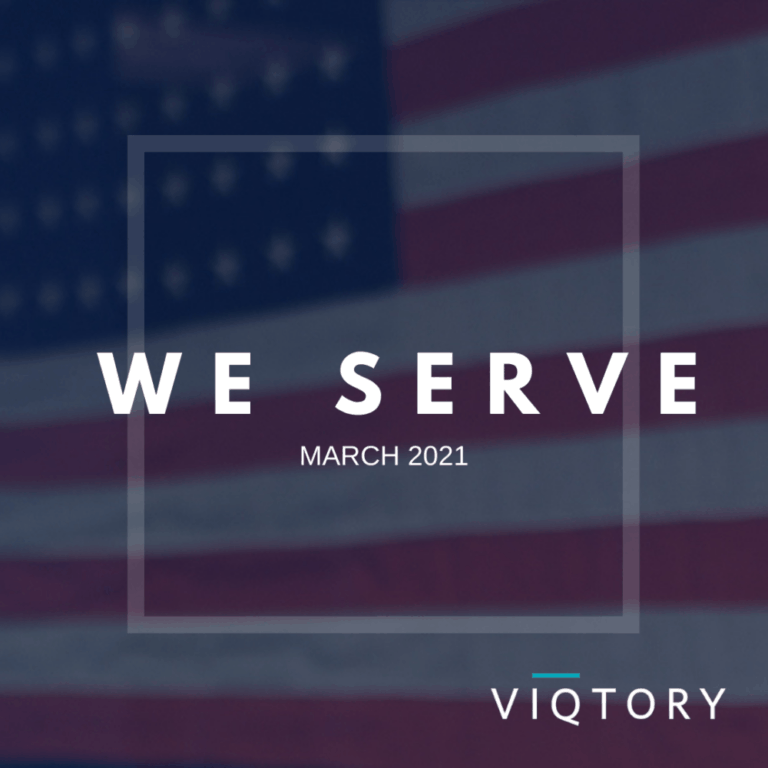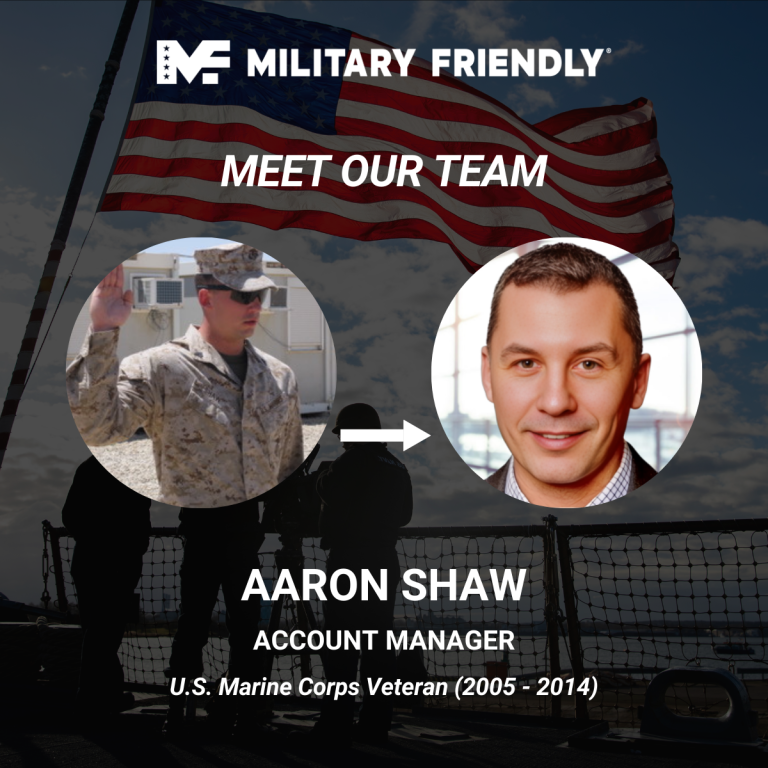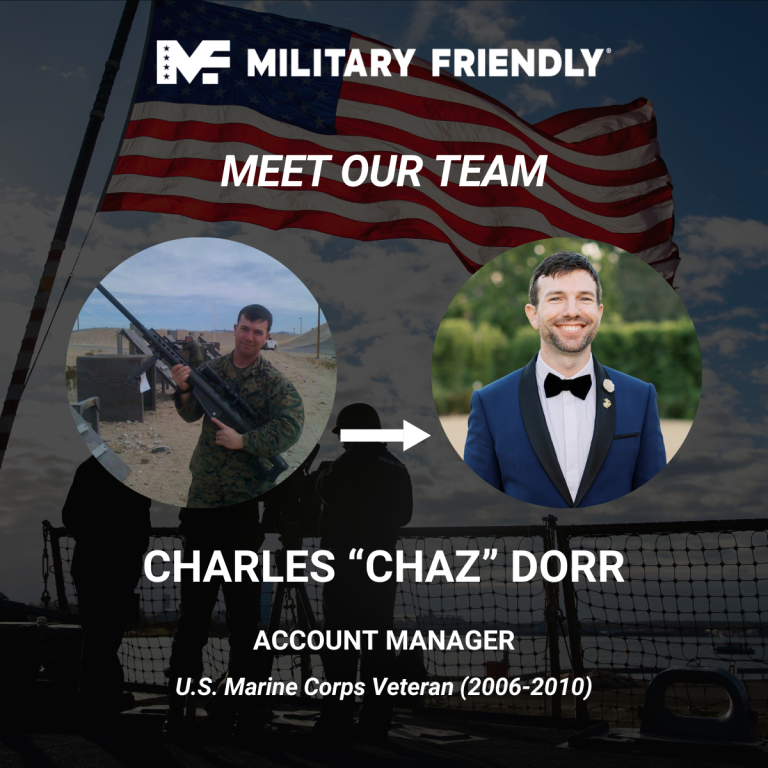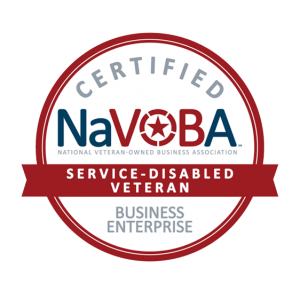Letter from our CEO
In feedback from January’s inaugural We Serve newsletter, I was encouraged to hear so many share a desire to rise above partisan divides and come together in more meaningful ways to serve the military community. Thank you.
But let’s talk about how others sometimes view our community of those creating civilian opportunity for the military community. Outsiders and critics have long viewed the many disparate organizations performing this noble veteran mission as fragmented. They say things like, “Why can’t the veterans get it together?”, “Speak with one voice?”, “Why can’t they consolidate?”, and, unfortunately, at times, “Why are the veteran groups fighting amongst each other?”
First, I submit that the beautiful diversity of organizations serving our veteran community is to be lauded. This rich diversity brings many valuable perspectives on achieving our mission.
Veteran service organizations are the advocates, pushing for the passage of laws aimed at helping veterans and military spouses thrive in the private sector.
Legislators in the federal, state and county governments pass those laws and policy guidance creating programs.
Presidents, governors and their staffs use their vast influence to create awareness and invoke action from all corners of American society.
Government agencies like VA, DOD, Labor and state and county level VA agencies carry out the will of our VSOs and elected officials and run the programs that train transitioning veterans on how to pursue a job or an education.
Veteran-owned businesses and other private sector firms create the markets and platforms that enable connections between veteran talent and civilian jobs and education.
Non-profit organizations ensure that our most vulnerable don’t get left behind.
And, of course, American companies and colleges offer the jobs and the job training.
I challenge you to find a more vast array of resources of bright, passionate and motivated people serving any other group.
The results of the work of you, our veteran leaders, speaks for itself. Look no further than the drastic rise in prominence of corporate and higher education recruiting programs of veterans in the last couple of decades as proof.
But while we all agree on the pursuit of a vision of economic opportunity for veterans, we sometimes disagree on how or when we get there. And this is where our industry’s critics offer opportunity for us to get better.
Respectful debates are not just OK, they’re critical. We must all be open to new and different ways to support the veteran community. But our civility in how we treat each other during those debates—our respect for each other—is how we’ll be judged as a group. Respect for one another is ultimately how we’ll silence the critics. And it’s also the best thing for our veteran community. We are so much stronger together.
Many of you have shared information and news for years with us. Keep it coming, and we’ll continue to do our part in sharing the good work that you do.
Yours in service,
Chris
Celebrating 20 Years
At Viqtory, we’re celebrating our 20th year of connecting the military community to civilian opportunity.

A Megaphone for Veterans Advocates
In this section of the newsletter, we share the great work our veteran advocates are doing so we can build on that work and create better laws and policies to support veterans in the private sector.
- Veterans Service Organizations: We covered six veterans service organizations (VSOs) that formed a coalition to help vaccinate Americans against COVID-19. Iraq and Afghanistan Veterans of America (IAVA), Team Rubicon, Student Veterans of America (SVA), Team Red, White and Blue, The Mission Continues and Wounded Warrior Project formed the Veterans Coalition for Vaccination (VCV) and are leveraging their 1 million-plus veterans to help ensure access to vaccinations. Learn More
- Military Families: The March/April issue of Military Spouse magazine featured an update on the Military Housing Tenant Bill of Rights, including insight from the Military Officers Association of America (MOAA), Secure Families Initiative and the National Military Family Association (NMFA).
- TAP for Military Spouses: The March/April Military Spouse also detailed the new Transition Employment Assistance for Military Spouses (TEAMS) program, a series of virtual workshops developed by the US Department of Labor’s Veterans’ Employment & Training Service (DOL VETS) that helps military spouses plan and prepare for their job search.
Content, Tools & Training for Transitioning Service Members and Military Spouses
In this section of the newsletter, we share tools, content and resources to help veterans make a successful transition into the private sector.
Skilled Workers Needed!
Critical sectors like commercial and defense shipbuilding are hurting for skilled workers, and America’s veterans could be a big part of the solution.
The cover story for the February 2021 issue of G.I. Jobs takes a deep dive into this shortage that could pose a threat to national security. Read more here.
-
Our next G.I. Jobs Virtual Career Fair on March 24 focuses on the need for skilled trades workers and will feature keynote speaker Gordon Logan, founder and chairman of Sports Clips Haircuts, Air Force veteran, and recipient of the 2015 Vetrepreneur of the Year award.
If you're an employer looking for skilled trade workers, we invite you to join us. Get your booth set up early and access hundreds of resumes prior to the event! Reserve your booth today.
Creating Civilian Opportunity
In this section of the newsletter, we share proprietary data, insightful anecdotes and best practices from the leading companies and schools about how to recruit, promote and advance veterans as employees, students, and franchisees.
-
Military Friendly® Employers (MFEs) - Year over year we have seen a consistent increase in companies moving to a no time restrictions policy for their Guard and Reserve employees. 51% of all Military Friendly® Employers have removed time restrictions on pay benefits for their salary Guard and Reserve employees called to active duty. In addition, 82% of the top-ranked employers follow this practice. This practice leads to positive outcomes for employees, increases employee satisfaction and reduces risk for employers.
Companies that have set the standard for a balanced Guard and Reserve policy that provides flexibility and a customized approach to filling the unique needs of every person utilizing this benefit have higher retention rates for their returning employees. These days as Guard and Reserve employees are frequently activated more than once in a calendar year, it's important to revisit policies to ensure there is no bias, discrepancies or confusing limitations. Defining limitations and removing time restrictions can be a great way to make adjustments for multiple activations in a calendar year. -
Verizon proudly supports its employees serving in the United States military. Many of the benefits Verizon offers go above and beyond a service member’s rights as addressed by the Uniformed Services Employment and Reemployment Rights Act (USERRA) of 1994 and/or state law. With regard to pay treatment while on leave, an employee's years of on the job service determines the amount of military differential pay that the employee receives from Verizon while on military leave. If an employee has (6) months or more of on the job service, the employee is eligible to receive a cumulative maximum of 36 months (3 years) of military differential pay from Verizon. If an employee has less than six (6) months of on the job service, the employee is eligible to receive a cumulative maximum of 10 days of military differential pay per calendar year.
"As a sixteen year V-Teamer, I can say without a doubt, Verizon's Military Leave policy is the best in the world. Words are difficult to describe the amazing support I continue to receive from all my V-Team family. Our Credo states the foundational premise of who we are as an organization. When our military reserve component employees "run to a crisis" to support our states and nation in disaster response, civil support, and even combat operations, it is with great comfort and pride knowing Verizon will support us in times of need. I am, and always will be, a V-Teamer for Life." David Green, Verizon Public Policy Law and Security employee plus Lieutenant Colonel in the US Army National Guard (Texas) -
Military Friendly® Schools (MFS) - Choosing to attend college while serving in the armed services can be a great way to prepare and diversify civilian career options and opportunities. However, individuals who choose this route find that it does present unique challenges, not just to the service members, but also to the educational institution as well. In order for schools to meet these needs, provide positive outcomes and retain these students they must make adjustments to current policies ahead of the challenges that arise.
Without exception, all of the top 10 2021-2022 Military Friendly® Schools across every category allow active duty or Reserve students who leave a class due to deployment to return without penalty. It's also important when addressing the unique needs of our service members to consider how a deployment or relocation may affect dependents and military spouses.
An average of 75% of the top Military Friendly® Schools have a policy concerning military spouses and dependents whose families must move due to redeployment or relocation. When it comes to the adoption of policies concerning military spouses and dependents, the top 10 schools in the categories of Private Offering Doctorate, Small Community College, and Small Public lead the charge.
About VIQTORY: For Veterans, By Veterans
Founded in 2001, VIQTORY is a service-disabled, veteran-owned small business that connects the military and veteran community to civilian employment, education and entrepreneurship opportunities. VIQTORY’s brands include G.I. Jobs, Military Spouse and Military Friendly®.

